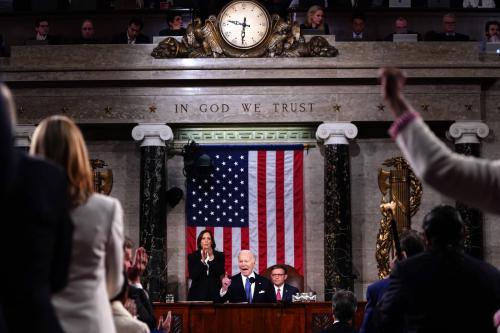Once upon a time, in the fairyland of American presidential politics, it used to stop at the water’s edge. A candidate for the nation’s highest office would not criticize a president’s foreign policy, certainly not during the heat of a presidential campaign. Not right, it was thought, for such criticism might be exploited by America’s enemy. As you may have noticed over recent years, that inhibition has melted away, and sadly the American people seem not only not to have noticed but seem to approve of the political combat.
Take Syria, as a good example of the problem.
President Obama clearly does not want to get militarily involved in the worsening crisis in Syria—not now and possibly not ever; not when the U.S. is still fighting in Afghanistan, not when the Pentagon faces further budget cuts that Defense Secretary Panetta describes as potentially “catastrophic,” not when Yemen continues to slide into a messier civil war, and, finally, not in the midst of a re-election campaign that is topic No. 1 at the White House.
And yet, predictably, as the sun will set tonight and rise tomorrow, Obama’s Republican challenger, former Massachusetts Governor Mitt Romney, continues to rip into the president’s foreign policy, describing it as “weak” and “feckless” and adding that if he were president, he would be supplying military equipment to the insurgent forces in Syria. “The world looks to America to lead,” he says, “and we’ve been sitting in the back burner hoping things would become arranged in a way that was attractive to the world.” Romney’s main point, clearly, is that, under Obama, America is not leading the world and, under him, it would be. “Frankly,” he concludes, “what’s happening in Syria is unacceptable.”
Agreed. What’s happening in Syria is unacceptable. So what should the world be doing? What should the U.S. be doing? The two questions are linked, because quite often these days the world does nothing unless and until the U.S. does something—namely, by leading the rest of the world into action. At the moment, the president has decided he does not want to further “militarize” the crisis in Syria. He wants to lead the diplomatic offensive, but go no further. In a way, his reasoning makes little sense, in part because arms are already flowing into the rebel forces and, besides, the Syrian regime is heavily stocked with weapons provided by its Russian sponsor over many years.
Moreover, Syria’s strongman ruler, Basher el-Assad, shows no signs of abiding by the disintegrating UN peace plan or of reaching an accommodation with the rebels. He knows that such an accommodation would lead inevitably to his downfall—and clearly he wants to hold on to his power base in Damascus.
Only if Russia decides to lean heavily on el-Assad and force an accommodation with the rebels will there be a political settlement. That being the case, one of Obama’s top priorities now ought to be sitting down with President Putin and somehow producing an acceptable plan for resolving the Syrian crisis. Nothing else seems to hold any promise of success, and even an Obama-Putin summit may do little to ease the crisis.
Short of a political settlement, Syria seems to be drifting into a brutal civil war that in the near future will openly pit Shia against Sunni, splitting the country along religious lines and spilling over national borders into neighboring Lebanon, Turkey and Jordan. Then, whether Obama likes it or not, America will be obliged to enter the fray, dangerous from every possible perspective. If Romney wins in November, he too will be saddled with the same crisis. There is no escape from presidential responsibility.
I’m dreaming, I know, but wouldn’t it be wonderful if Romney, as GOP candidate, would seek opportunities to help the president, and therefore help America—support the idea of an Obama-Putin summit, for example—rather than capitalize on a foreign mess such as Syria to present a mixed signal to the world about American policy. Syria, we know, presents an “unacceptable” reality. Editorials in the Times and Post cry out for the U.S. to do something, but both newspapers and Romney are relatively mute on exactly what. Are we as a nation really so bereft of practical suggestions?



Commentary
Once It Stopped at the Water’s Edge
May 31, 2012